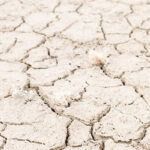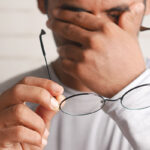Understanding and Avoiding Dehydration Insomnia
Did you know that over 75% of your body is made up of water? The brain and heart alone are over 70% water, while the lungs are made up of 83% H2O. Other important organs like your kidneys, skin, and muscles are also more than 50% water. This is one reason adults should drink between half an ounce and one ounce of water for each pound they weigh per day.
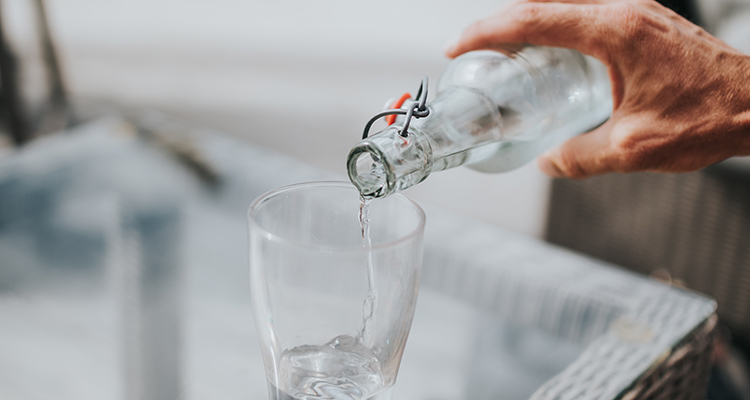
Drinking enough water is imperative for a myriad of body functions including regulating body temperature, delivering nutrients to cells, preventing infections, moisturizing your skin, lubricating joints, and promoting proper organ function. In addition, hydration helps regulate your mood, supports healthy cognitive function, and promotes quality sleep.
Sadly, more than half of the population doesn’t drink enough water, leading to a long list of side effects that range from minimal or mild to severe. When it comes to sleep, dehydration can create unwanted barriers while lack of sleep may increase your risk of becoming dehydrated, creating a complex relationship. On the other hand, too much water intake prior to bed could cause sleep disturbances and frequent urination. The trick is finding the right balance between drinking too much water and not drinking enough.
In this article, we’ll discuss the role hydration plays in sleep quality and how dehydration may trigger insomnia symptoms.
Content
What Causes Dehydration?
The short answer is insufficient fluid intake. This can happen by not consuming enough fluids or losing more fluids than you’re taking in. Because so much of your body is made of and relies on water to function, low levels can cause a myriad of issues from headaches and lethargy to constipation and in extreme cases, death. The human body can only survive 3 days without water. Water balances your internal temperature and keeps crucial cells and organs alive and functioning. All too often, busy schedules and lifestyle choices keep us from consuming the recommended amount. Illnesses that induce vomit, diarrhea, and excessive sweating can also put you in danger of dehydrating.
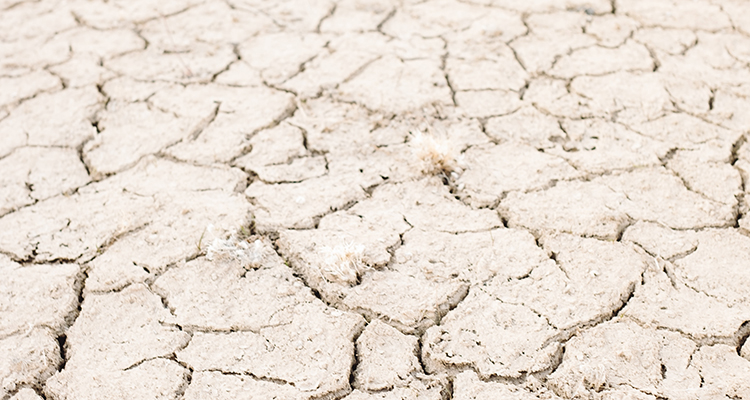
Dehydration Symptoms
Symptoms of dehydration present themselves rather quickly but may be mistaken for other things. Oftentimes, people brush off these symptoms as something else when, in fact, these physical discomforts are your body’s way of alerting you that it needs more water – STAT!
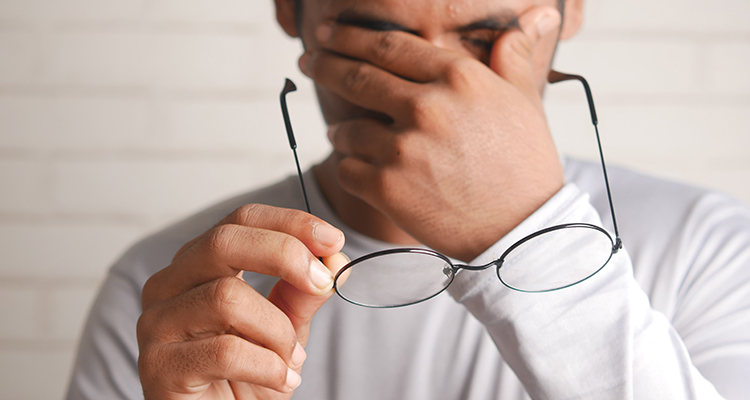
Things like dry mouth, muscle weakness, headache, and dizziness are the initial signs of dehydration. Once severe dehydration sets in, which is when you lose 10-15% of your body’s water, you may notice more severe symptoms including:
- Confusion or delirium
- Sunken eyes
- Inability to sweat
- Low blood pressure
- Increased heart rate
- Fever
- Dry mouth and skin
Elderly adults and athletes are at the greatest risk of experiencing dehydration. But even those of us who drink water periodically throughout the day are at risk of experiencing some form of dehydration. Even a mild case can cause health complications – one of which is insomnia. Although lack of energy and lethargy are common side effects of insufficient water intake, the inability to sleep is also another unpleasant symptom of dehydration.
Let’s take a look at why and how dehydration can interrupt your sleep and options for insomnia treatment at home.
The Connection Between Dehydration and Sleep
Dehydration itself won’t cause insomnia – except perhaps causing you to wake with extreme thirst. It’s the symptoms caused by dehydration that can make falling and staying asleep nearly impossible. For example, headaches, dry mouth, muscle cramps, and nasal congestion can interfere with your ability to fall asleep and to achieve quality sleep. On the other hand, drinking too much water can also cause disruptions in sleep due to frequent urination. For some people, once they wake up to use the bathroom, it’s increasingly difficult to fall back asleep.

Some research suggests that inadequate sleep may aso trigger dehydration in some people. One study showed that individuals who only get six hours of sleep per night show higher rates of dehydration than those who get the recommended 7 to 9 hours.
There are also underlying biological factors that may play a part in the relationship between sleep quality and dehydration. Insensible water loss occurs when you lose large amounts of fluid through the skin and from breathing, which happens primarily at night. The amount of water you lose is directly impacted by whether or not you breathe through your mouth or nose. You’re also not consuming water while sleeping, which means that for 6 to 9 hours, your body is going through a short dry spell and can’t recoup fluids lost through insensible water loss. At this point, your circadian rhythm is engaged in an effort to balance hydration levels. This system is also responsible for producing a hormone known as vasopressin which helps your body retain water. This process occurs during the later stages of sleep, which is why those who experience interrupted sleep or wake too early in the morning are missing this vital natural occurrence. It’s this evidence that suggests poor sleep quality can contribute to dehydration.
Currently, there’s no evidence that suggests mild dehydration causes insomnia or other sleep disorders. For example, one day of low fluid intake will cause a different form of dehydration not consuming enough fluids for an extended period of time. However, those at higher risk of dehydration, like the elderly, may see significantly more severe dehydration symptoms after even just one day of low fluid intake.
Avoiding Dehydration at Night and During the Day
The good news is there are plenty of ways to ward off the unpleasant side effects of dehydration both at night and during the day to promote quality sleep.
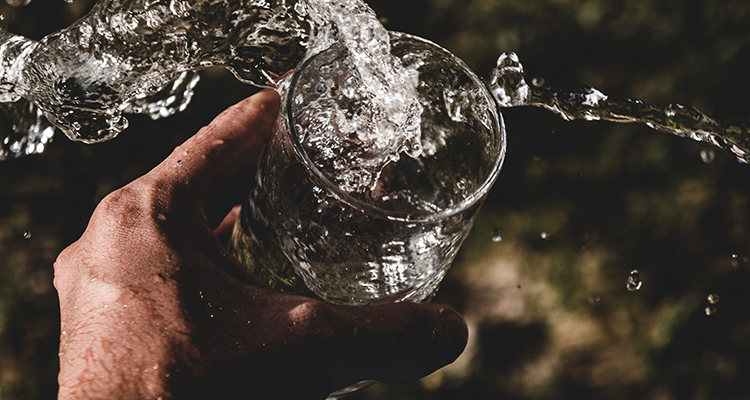
Drink Plenty of Fluids During the Day
The first defense against dehydration is a strong offense and that means drinking plenty of fluids during the day. This is especially important if you notice yourself feeling especially thirsty at night. As previously mentioned, chugging several glasses of water before bed might quench your thirst but it’ll also result in frequent trips to the bathroom! Instead, maintain healthy fluid levels throughout the day so you can go to sleep hydrated and with a relatively empty bladder.
With the majority of adults struggling to maintain proper hydration throughout the day, there are a few tips and tricks to upping your fluid intake. Start by keeping a water bottle on-hand at all times and frequently sipping from it. You don’t need to drink large amounts of water all at once. Instead, gradually work your way through a few bottles or glasses of water throughout the day. You can purchase water bottles with fluid intake markers on them and other devices to help guarantee you’re getting enough fluids at the right times. For anyone with a hectic schedule, setting an alarm or reminder to drink water is a great way to stay ahead of dehydration.
Make sure that water is your primary drink of choice. Limit the amount of caffeinated beverages, sodas, and energy drinks you consume. Not only are most drinks filled with artificial flavors and added sugar, but caffeine will definitely interrupt your sleep at night. Coffee is also a diuretic and will cause you to lose excess water through urination. Be sure to munch on healthy snacks with a high moisture content like fruits and vegetables. These count towards your daily fluid intake and they’re also a healthy alternative to processed foods.
Avoid Frequent Urination at Night
While staying hydrated during the day is key for preventing unwanted dehydration, it can also cause increased urination at night. Not drinking water right before bed is one way to prevent this, but it’s not the only way.
Reduce your fluid intake at least two hours before bed. Avoid alcohol, coffee, and other diuretics too close to bedtime. Not only will these cause frequent bathroom trips but both caffeine and alcohol can interrupt your natural sleep patterns, causing you to wake up multiple times during the night.
Try a different sleep position like elevating your legs at night. One cause of nighttime urination is that when you lay down, your body reabsorbs water from your legs. By elevating your feet both during sleep and prior to laying down, you can speed up the reabsorption process, preventing it from waking you up. Always try to use the bathroom right before you lay down – even if you don’t feel like you have to go. Emptying your bladder before bed will reduce your urge to get up and urinate while sleeping.
Limit Stimulation When Waking Up During the Night
Sometimes, you simply can’t help but get up to use the bathroom at night. While this is fine, what you do during your bathroom trip can be the difference between falling back to sleep quickly and tossing and turning for hours.
Avoid turning on lights that are too bright. Invest in motion-activated night lights that offer enough light for you to safely navigate your way to the bathroom without becoming overstimulated. Make sure your path to the bathroom is clear to avoid injury. While it may be tempting to peek at your phone during your middle-of-the-night bathroom trip, don’t! Not only will the light from your phone trigger your brain into being alert and awake, but whatever information you take in could cause unwanted thoughts that keep you from falling back to sleep. When you do return to bed, try taking a few deep breaths or using other mindfulness techniques to relax your mind and body and ease back into a state of blissful sleep.
Maintain a Comfortable Bedroom Temperature
Most people don’t realize the significant role that temperature plays in your ability to achieve quality sleep. Not only is your internal body temperature important but the temperature of your bedroom is also important. Maintaining the right bedroom temperature, which experts suggest is 65 degrees Fahrenheit or 18.3 degrees Celsius) prevents you from getting too hot or too cold at night.
Your body temperature naturally lowers during sleep. If your room is too cold, you may wake up reaching for an extra blanket. One the other hand, a room that’s too hot will cause you to toss, turn, and wake up sweating. It’s this last side effect that can have a major impact on dehydration during sleep. If you experience excessive sweating at night, it can result in significant fluid loss. The more you sweat, the more dehydrated you’ll become and you may wake up reaching for a glass or water. This can then trigger urination later on, disrupting your entire sleep cycle.
Make sure your thermostat is set properly and invest in lightweight pajamas or loose clothing that allows for plenty of air flow. Breathable bedding can also prevent you from overheating.
Focus on Good Sleep Hygiene
While maintaining good sleep hygiene is always important, it’s especially important when combating the negative effects of dehydration. One reason is because of the complex relationship between sleep and hydration. Remember, some evidence suggests that lack of quality sleep can actually cause dehydration in otherwise healthy individuals. Getting quality sleep can help your body retain important fluids and reduce your risk of becoming dehydrated.
Your body undergoes several complex processes during sleep, all of which contribute to your overall health and your body’s ability to recover and store new information. When you sleep well, you help support these natural processes which also promote a balanced circadian rhythm and fluid levels.
Sleep hygiene describes everything you do to promote quality sleep from creating a healthy slepe routine to setting a sleep schedule and even reserving your bedroom for sleep and sex only. Reduce stress during the day and at night by exercising, meditating, and adopting other behaviors that support healthy physical and mental health.
Getting Enough Hydration Means Getting Enough Sleep
Your overall health and wellbeing is directly related to how well you sleep. In the same turn, your sleep quality directly impacts your health. This same complex relationship exists between hydration and sleep. Without adequate fluid intake, you’ll experience a long list of health complications that can disrupt your sleep. Prolonged sleep deprivation can also trigger dehydration, creating a negative cycle of insomnia.
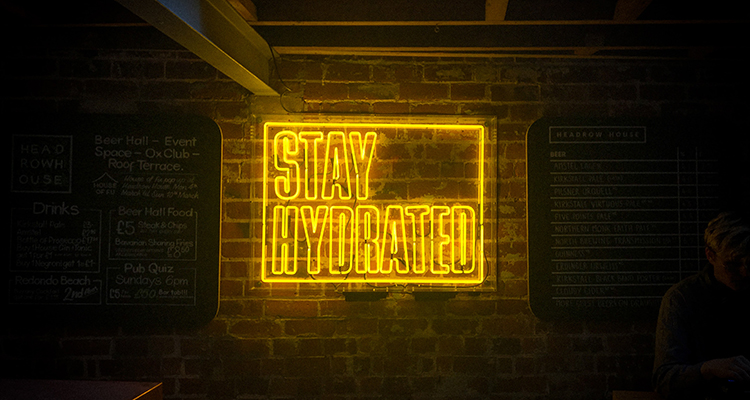
The professionals at Somnus Therapy can help you identify, accept, and overcome your sleep troubles. Our therapy methods and treatment approach allow you to complete your sleep therapy in the comfort of your home. Users have access to countless resources, information, and sleep experts.
Click here to start your journey toward blissful, restorative sleep today.

